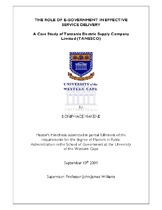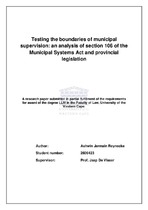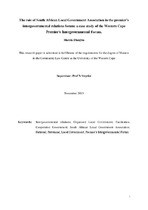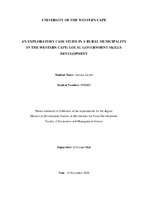| dc.description.abstract | The essence of e-government is to link government activities with the advanced
technology that the world is having today. This technology has already shown a
remarkable job in bringing efficiency in private sector through e-business, e-banking, e-procurement etc.It is, therefore, recommended by this study that government and its agencies could utilize e-government initiatives to bring service delivery closer to citizens. By so doing government officials and citizens would become much closer and perform their duties well and efficiently.The experience from various countries shows that there are various Information and Communication Technology (ICT) and e-government initiatives even in poor countries. In rural areas of Tanzania where electricity has never been thought to
reach where illiteracy rates are increasing and where poverty is high, people are
using mobile phones for their activities. This is possible as the prices of mobile
phones are low and networks are available in such rural part of the country.
Tanzania enacted ICT policy in 2003 which, among other things, emphasizes the
need to have success in e-government services. Experience on ground, though,
reveals that this policy is often not implemented. What seems in the implementation
of ICT policy in Tanzania difficult is the lack of political will and the will to agree to
change.On the other hand, Tanzanian citizens have been for a long time ready for change. A good example may be advent of the mobile phone industry in the country. Many respondents in this research expressed the need to adopt ICT to advance ordinary people.These respondents recommended that government officials accept change with regard to ICT, to introduce developmental plans and be innovative and creative enough in establishing service delivery programmes. As borne out by this study, ICT can also be used to link the private sector, public sector and service delivery to citizens.Still though, poor countries, apart from having many priorities to contend with, have to acknowledge that the world is changing rapidly and in order to combat poverty more effectively, technology is useful as it makes people understand the trends and changes that the world is witnessing today. Indeed, Tanzania can use ICT to move ahead in e-government because it has a good telecommunication system, a factor that would allow for the success of online services. | en_US |




